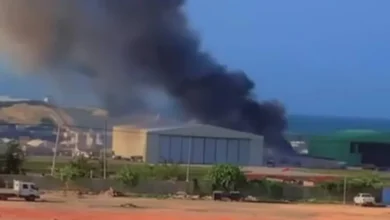
In a decisive move against terrorism in eastern Democratic Republic of Congo, the Beni garrison military court delivered its verdict Monday evening after a two-week trial involving alleged collaborators of the Allied Democratic Forces (ADF). The case is being hailed as a turning point in the region’s struggle for justice and security.
Twenty-three individuals were sentenced to between five and 20 years of penal servitude. The charges included participation in an insurrectionary movement, criminal conspiracy, and financing and executing acts of terrorism. The court’s presiding judge, Lieutenant Colonel Nyembo, emphasized the gravity of the offenses, citing Article 7 of the military criminal code as the basis for the harsh penalties.
The convictions target those found to have supported the ADF an armed group linked to the Islamic State either through direct involvement in attacks or by providing logistical and financial aid. For communities in Beni, Lubero, and Ituri, which have long suffered under the shadow of ADF violence, the ruling offers a measure of hope and a signal that justice is being pursued.
Civil society leaders welcomed the decision, though the legal process is not yet over. Defense attorney Maître Paluku confirmed plans to appeal, asserting the right to challenge outcomes under the law’s two-tier jurisdiction system. “Where we find irregularities, we will appeal,” he told Africanews. “If we’re not satisfied with the verdict for any of our clients, we’ll take it to a higher court.”
Among those sentenced, Judison Kasereka Katrisa received the harshest penalty 20 years for financing and committing acts of terrorism. His conviction struck a chord with the local population, weary from years of insecurity. Pépin Kavitha, president of Beni’s civil society, voiced his community’s approval: “We welcome this conviction. We want all those arrested to be brought back to Beni to stand trial. This will serve as an example.”
The verdict comes amid a backdrop of continued violence. In early September, the ADF carried out a brutal attack in Ntoyo, North Kivu, killing around 100 people attending a funeral. The massacre underscored the group’s persistent threat and the urgent need for a coordinated judicial and security response.
Eastern DRC, particularly the provinces of Ituri and North Kivu, remains gripped by a humanitarian and security crisis. The Beni court’s ruling is seen as a significant stride in the long and arduous journey toward peace and justice. Whether these convictions will deter further violence and help dismantle armed networks remains uncertain but for now, they represent a firm stance against impunity and a call for accountability.



